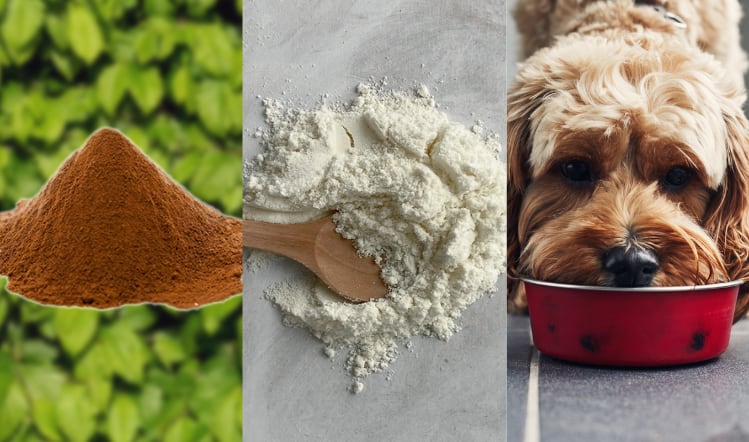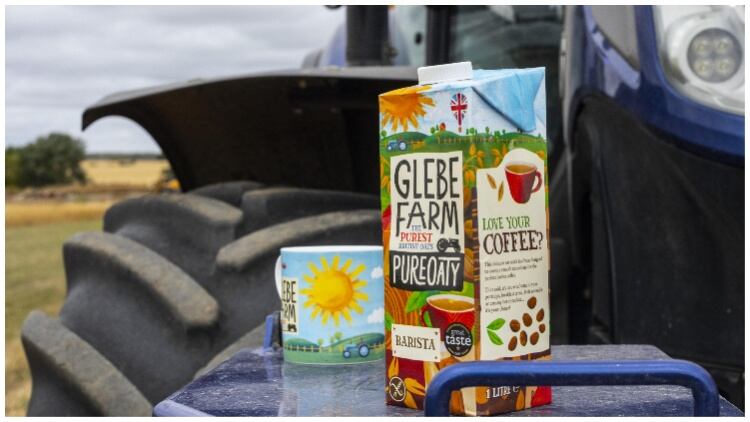Vegan casein seeks regulatory approval
Ingredients firm Fooditive is seeking approval for a new vegan casein – the protein typically found in milk and dairy products – for use across dairy and meat replacement applications.
Developed using a proprietary bacterial strain via precision fermentation, the vegan casein is genetically identical to dairy casein but completely animal-free. Fooditive described the product as a “door to the development sustainable, nutritious plant-based dairy products that are much closer to the originals in terms of taste and texture”.
Initially produced from a yeast, the shift to a unique bacterial strain developed through gene synthesis offers the advantage of improved scalability, efficiency, cost optimisation and safety.
As well as plant-based dairy products such as cheese and yoghurt, the non-animal casein is suitable for use in vegan meat applications to provide a moist and pleasant mouthfeel.
Manufacturing trials have been completed and Fooditive is now in a position to begin production of vegan casein at scale in Europe. However, the product still needs to obtain approval as a Novel Food in the EU.
In order to secure this approval, Fooditive hoped to collaborate with a like minded partner.
Moayad Abushokhedim, Fooditive chief executive and founder, said: “On this journey, we are not just navigating regulatory processes, but also reinforcing our belief in collaborative growth and shared success. Fooditive is not just hopeful, but enthusiastic to embark on this journey with a like-minded partner, to unlock new possibilities, and to redefine the vegan casein market together."
“With this enhanced production process, we are poised to expand our offerings and meet the growing demand for sustainable and affordable dairy alternatives. By leveraging the advantages of our bacterial strain, we have further solidified our position as a leading player in the plant-based food industry, dedicated to driving positive change and revolutionizing the way we consume and enjoy food.”
Microalgae driving growth in vegan pet food
The pet food microalgae market is slated to reach US$24m (£18.9m) by 2023 and hit highs of US$38.3m (£30.5m) by 2033 at a CAGR of 5%, according to Future Market Insights (FMI).
With pets living longer and their health a major concern for their owners, microalgae can provide a highly sustainable source of the most sought-after omega-3 fatty acids that are not restricted by a natural resource.
High-quality algae are odour-and colour-neutral, giving pet food manufacturers more leeway in product development. DHA gold S17-B, a dried whole-cell algae ingredient, is commercially available and contains nearly twice the concentration of DHA found in fish oil.
The price of this type of algae is also consistent because it is produced through fermentation, where demand has a much smaller impact on production costs.
“Spirulina microalgae are regarded as a vital source of micro- and macronutrients, including iron, high-quality protein, carotenoids, vitamins, and gamma-linolenic fatty acids. Intake of microalgae spirulina helps the pet to produce immunoglobulin A,” read a recent report from FMI.
“Nutritional properties of spirulina microalgae driving the growth of the global market in the pet food sector. Spirulina is estimated to account for more than 64% of market share in 2023.”
Dog feed applications of microalgae accounted for a maximum share of nearly 46% in 2022, which is also expected to witness a lucrative growth rate of 6.0% over the forecast period.
“The manufacturers operating in the dog feed market drive the demand for microalgae-based food products owing to their nutritional properties. Manufacturers in the global pet food microalgae market are focusing on developing innovative products to meet emerging demand from both emerging and established markets.”
Making to most of coffee waste
Olam Food Ingredients (OFI) is looking to close the loop in the coffee supply chain with the development of a new ready-to-use soluble powder made from upcycled coffee fruit.
Soluble cascara powder ingredient is made from washed and recovered coffee cherry fruit, a by-product of coffee bean wet mill processing.
The powder aroma and flavour profile were described by OFI as being reminiscent of caramel, honey, raisins, and butterscotch, which gives the ingredient a versatile range of applications – including ready-to-drink beverages, snack bars, ice cream, confectionery and baking.
Vivek Verma, managing director and chief executive OFI Coffee said: “By upcycling what was once coffee fruit waste into a usable food ingredient, OFI is reducing the environmental burden while potentially helping coffee farmers generate additional revenue.
“There’s more progress to be made and we look forward to seeing what change this new ingredient brings to our customers, farmers, consumers and its impact on the environment and supply chain.”





